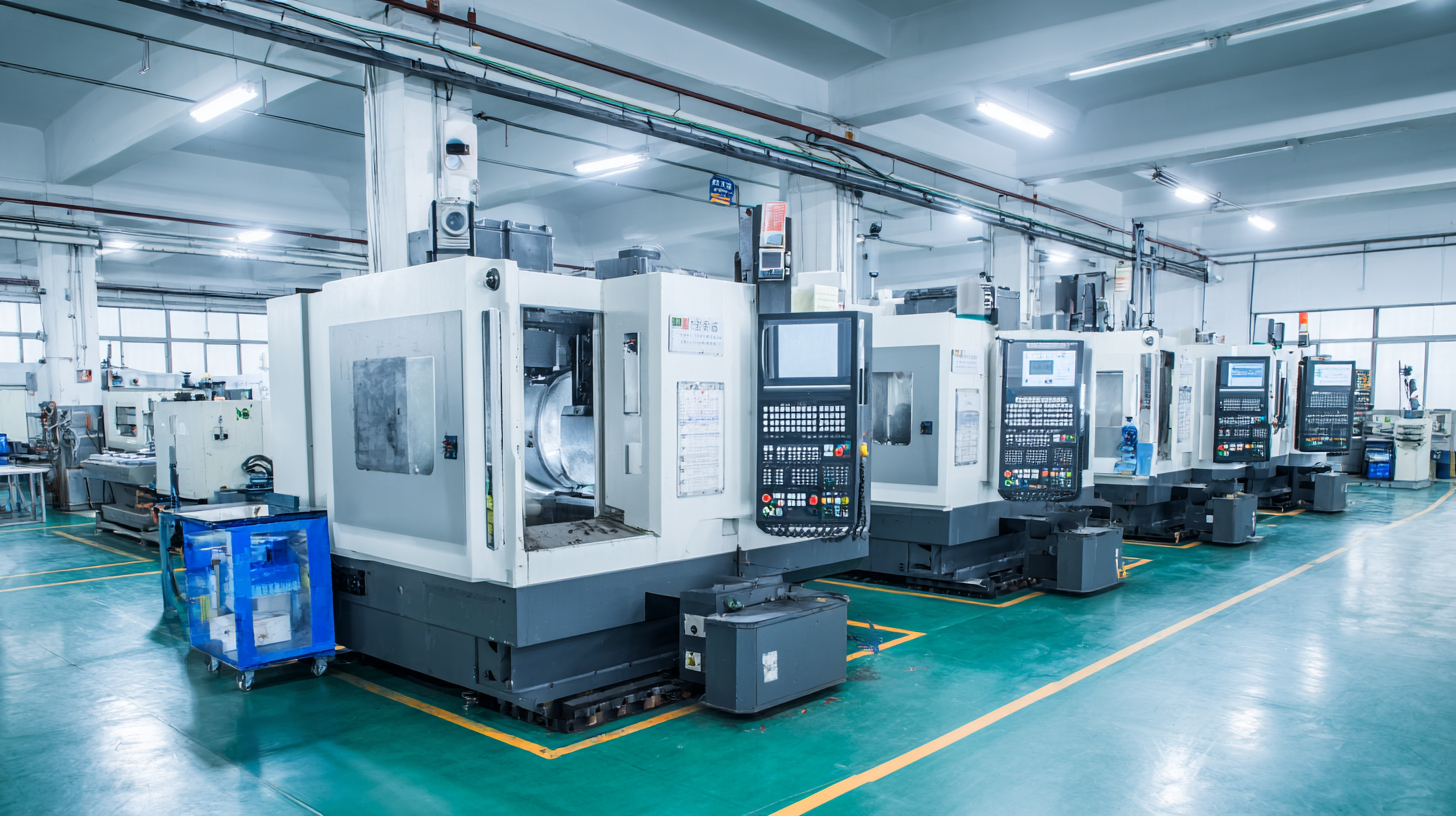Exploring the Role of Import and Export Certifications in Best Mold Manufacturing
In the competitive landscape of mold manufacturing, the significance of import and export certifications cannot be overstated. According to a recent report by the International Trade Centre, the global market for molded products is projected to reach $600 billion by 2025, driven by advancements in technology and increasing demand across various sectors, including automotive and consumer goods. Proper certifications not only ensure compliance with international standards but also enhance the credibility of manufacturers in the eyes of global clients. As industries increasingly prioritize quality and safety, the role of import and export certifications is pivotal in facilitating market entry and expanding business opportunities. This blog will explore how these certifications influence best practices in mold manufacturing and contribute to a company's overall growth strategy.

The Importance of Import and Export Certifications in Mold Manufacturing
In the mold manufacturing industry, the significance of import and export certifications cannot be overstated. These certifications serve as a crucial guarantee that manufacturers comply with international quality standards, which is vital for fostering global trade. According to the International Organization for Standardization (ISO), companies that are certified enjoy a revenue increase of up to 20% compared to non-certified counterparts. This elevation in revenue is primarily attributed to enhanced consumer trust and the ability to penetrate new markets.

Moreover, the presence of appropriate certifications like CE marking and ISO 9001 not only ensures compliance with regulatory demands but also significantly improves operational efficiency. A study by the American Society for Quality (ASQ) found that organizations with ISO certification are 60% more likely to experience reduced waste and defects in their manufacturing processes, ultimately leading to cost savings and improved profitability. As mold manufacturers navigate the complexities of international trade, securing these certifications plays a vital role in maintaining competitiveness and driving business growth in an increasingly interconnected global economy.
Key Technologies Shaping Mold Manufacturing in 2025
As we look towards 2025, the mold manufacturing industry is poised to undergo significant transformation driven by key technologies. According to a recent report by MarketsandMarkets, the global mold manufacturing market is expected to reach $20 billion by 2025, reflecting a growing demand for innovative solutions. Among these technologies, additive manufacturing is emerging as a critical player, allowing for the rapid prototyping of complex mold designs. This not only accelerates production times but also reduces waste, which is becoming increasingly important in an era focused on sustainability.
Additionally, the integration of Industry 4.0 technologies, such as IoT and AI, is revolutionizing the mold manufacturing process. A report by PwC highlights that by 2025, 67% of manufacturers will invest in smart manufacturing technologies to enhance operational efficiency and product quality. The predictive maintenance capabilities of AI can significantly lower downtime and extend the lifespan of mold tools. As such, mold manufacturers who embrace these advancements will not only stay competitive but will also meet the increasing customer expectations for precision and customization.
Exploring the Role of Import and Export Certifications in Best Mold Manufacturing
| Certification Type | Importance Level | Region | Key Technologies Impacted | Trends for 2025 |
|---|---|---|---|---|
| ISO 9001 | High | Global | Quality Management Systems | Increasing focus on quality assurance |
| CE Marking | Medium | European Union | Safety Standards | Stricter compliance for imports |
| RoHS Compliance | High | Global | Material Safety | Increased regulations on materials |
| UL Certification | Medium | North America | Electrical Safety | Demand for electrical safety increases |
| IATF 16949 | High | Automotive Industry | Automotive Quality Processes | Focus on advanced manufacturing technologies |
How Import Certifications Enhance Quality Assurance in Mold Production
Import certifications play a pivotal role in enhancing quality assurance within the mold manufacturing industry. According to a recent report by the International Organization for Standardization (ISO), approximately 75% of manufacturers that adhere to strict import certification processes experience significantly reduced defect rates in their products. This is vital in a sector where precision and reliability are paramount. Import certifications ensure that the materials and components used in mold manufacturing meet established standards, thereby increasing overall quality and customer satisfaction.
When navigating the complex world of import certifications, manufacturers should pay close attention to compliance with international standards such as ISO 9001 and ISO 14001, which focus on quality management systems and environmental management, respectively. Ensuring adherence to these certifications not only enhances product reliability but also opens up avenues for entering new markets that demand stringent quality assurance standards.
**Tips**: Always conduct a thorough audit of your supply chain to guarantee all imported materials comply with relevant certifications. Additionally, investing in training for your team on import certification processes can greatly improve the efficiency and quality of your production line. Regularly updating your knowledge on changing regulations is equally crucial to maintain compliance and competitiveness in the market.
Import Certifications Impact on Mold Quality Assurance
Best Practices for Navigating Export Regulations in Mold Manufacturing
In the mold manufacturing sector, navigating export regulations is crucial for ensuring compliance and maintaining competitive advantages in the market. As the U.S. and China experience a partial technological decoupling, manufacturers must stay informed about changing regulations that can impact trade operations. Understanding the intricacies of compliance not only helps in avoiding costly penalties but also enhances the credibility of manufacturers in overseas markets.
**Tips:** One effective strategy is to engage with local trade experts or legal advisors familiar with export regulations related to mold manufacturing. This can help companies anticipate regulatory changes and adapt their practices accordingly. Additionally, leveraging digital platforms that provide real-time updates on trade policies can keep manufacturers ahead of the curve.
Moreover, investing in certifications that align with international standards can facilitate smoother entry into foreign markets. Certifications can serve as a quality assurance for potential buyers, opening doors to new opportunities. Regular training for staff on compliance and export best practices also ensures that the entire organization is aligned with regulatory requirements, fostering a culture of diligence and excellence in operations.

Future Trends in Certification Standards for the Global Mold Market
As the global mold market continues to evolve, the importance of import and export certifications is becoming increasingly evident. These certifications not only ensure compliance with international standards but also significantly influence market access for manufacturers. In the coming years, we anticipate a shift towards more stringent certification requirements driven by advancements in technology and heightened consumer awareness regarding product safety and sustainability. This trend will compel mold manufacturers to continually adapt their processes, materials, and quality control measures to meet the emerging standards.
Moreover, innovations in certification processes themselves are expected to streamline compliance for manufacturers. Digital certifications, for example, are gaining traction, allowing for real-time tracking and verification of compliance status. This transition towards technology-driven solutions will enhance transparency and reliability in the mold industry. As manufacturers increasingly prioritize environmental considerations, certifications related to sustainable practices may become a pivotal factor in gaining acceptance in new markets. Thus, staying informed and proactive in responding to future trends in certification standards will be critical for those aiming to maintain and expand their competitive edge in the global mold manufacturing landscape.

